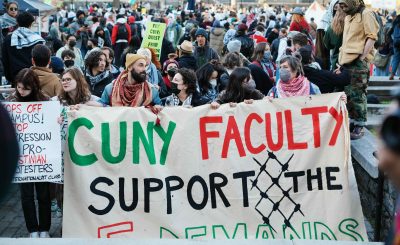By Kerry Wachter
The Federal Communication Commission (FCC) is considering changes to the protections covering interactive computer services under Section 230 of the Communication Decency Act of 1996. The National Telecommunications & Information Agency (NTIA), filed the petition to the FCC as required by the executive order issued by President Trump.
Section 230 has been referred to as the “26 words that created the Internetâ€. The act declared that interactive computer services were not publishers or speakers of content provided by third parties. It also provided civil liability protections for “good faith†efforts to remove objectionable content. “Section 230 set the legal framework for the internet that we know today that relies heavily on user content rather than content that companies create. Without Section 230 companies would not be willing to take so many risks,” Jeff Kossett, a cybersecurity professor at the U.S. Naval Academy and expert on Section 230 told Forbes.
However, Section 230 has come under increased scrutiny recently, as President Trump and conservative users charge the social media platforms like Twitter, Google and Facebook of targeting their accounts for censorship, by removing content that they disagree with politically. On May 26, Twitter placed a “fact check warning†on two of President Trump’s tweets about mail in voting. That action prompted the President to issue executive order 13925 on May 28, 2020 seeking limitations on liability provisions in Section 230.
According to the filing submitted to the FCC on July 27, 2020, by the NTIA, “NTIA requests that the FCC, initiate a rule-making to clarify provisions of section 230 of the Communications act of 1934, as amended.†Their leading argument is the protection of freedom of expression, “…social media and its growing dominance present troubling questions on how to preserve First Amendment ideals and promote diversity of voices in modern communications technology.†They state that “Congress intended section 230 to offer platforms immunity from liability under certain circumstances, namely to encourage platforms to moderate specific types of material, mostly that are sexual or inappropriate for minors. It is vital to remember, however, that Congress in section 230 also had the express purpose of ensuring that the, “internet and other [internet platforms] offer a forum for a true diversity of political discourse, unique opportunities for cultural development, and myriad avenues for intellectual activity.â€
Public comments concluded on September 17 with 19,689 submissions. The authors of Section 230, former congressman Christopher Cox (R-California) and current Senator Ron Wynn (D-Oregon) who was a congressman at the time the law was passed, expressed opposition to the petition by submitting a reply comment to the FCC, “The Petition asks the Commission to reverse more than two decades of its own policy by becoming, at this late stage in the life of Section 230, its regulatory interpreter. In so doing, the FCC would assume responsibility for regulating websites, content moderation policies, and the content of speech on the internet—precisely the result we intended Section 230 to prevent.â€
TripAdvisor, also in opposition said in their reply comment to the FCC, “NTIA’s petition focuses on a set of purported issues, which have received most of the political and media attention, with respect to large social media platforms. In focusing on those high-profile concerns, however, the petition ignores the fact that large social media platforms are in number an extremely small subset of the stakeholders that rely on Section 230 to operate.” No timeline was available for the deliberative stage of the process.


